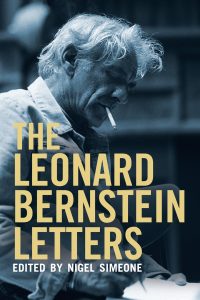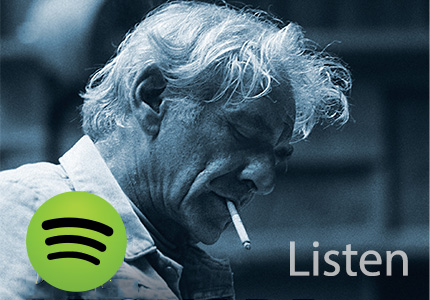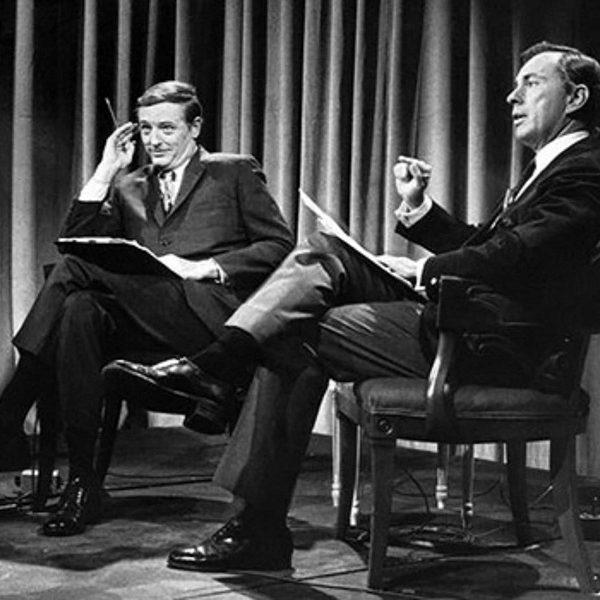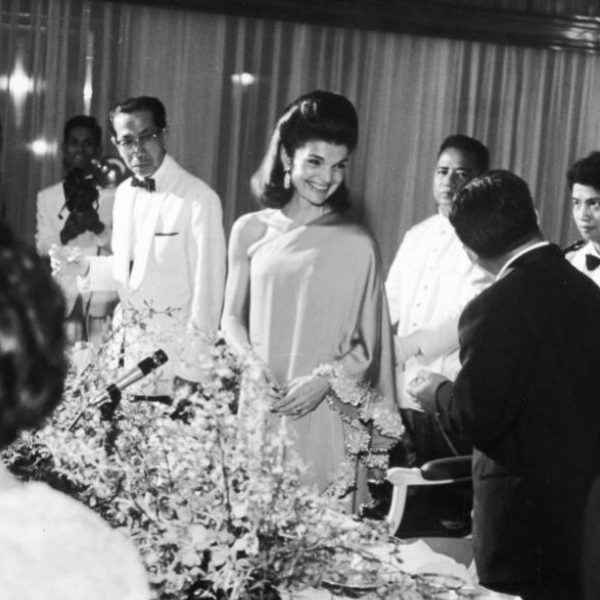Monday Inspiration: Leonard Bernstein Memorializes JFK and We Memorialize LB with a Spotify Playlist
 50 years ago today, Leonard Bernstein gave a speech at the “Night of Stars” memorial to President Kennedy at Madison Square Garden. In mourning the loss of this beloved President, Bernstein honored Kennedy’s support of the arts and called upon his fellow artists to strive for new artistic heights in response to the violence.
50 years ago today, Leonard Bernstein gave a speech at the “Night of Stars” memorial to President Kennedy at Madison Square Garden. In mourning the loss of this beloved President, Bernstein honored Kennedy’s support of the arts and called upon his fellow artists to strive for new artistic heights in response to the violence.
We hope to inspire you to greatness this Monday with a Spotify playlist of his compositions. Nigel Simeone, editor of the newly published The Leonard Bernstein Letters, has put together a thoughtful selection of Bernstein numbers to accompany the narrative that emerges from his letters. The playlist features numbers from West Side Story, Fancy Free, Symphony No. 4 in E Minor, Piano Concerto in G Major and Der Rosenkavalier, among others.
As a sneak preview, here are some excerpts from the book to accompany a few of the songs on the playlist, and the text of Bernstein’s memorial speech for President Kennedy:
Fancy Free Ballet: V. Competition Scene
Leonard Bernstein to Jerome Robbins [28 February 1944]
“Slow, slow, but sure. Number 5 is done and being shipped. It’s true enough connective tissue, a la movies, and ought to come off. It’s more or less all development of the competition motive, with some of the music of Girl #1 to use (during the rotation) for the conspiring of the two girls.
The pauses at the beginning indicate nabbing the exciting pas-de-deux couple, and indecision about the situation. (Rotation.) Then the competition comes in earnest, developing, through a scherzo-like section to a “dancy” section, by which time I imagine them on the dance floor! In the last measure a snare drum rolls, fortissimo, continuing beyond the music as a lead-in to the first variation (a la circus). I think it works.”
Symphony No. 3 (Copland)
Leonard Bernstein to Aaron Copland [27 May 1944]
“First I must say it’s a wonderful work. Coming to know it so much better I find in it new lights and shades – and new faults. Sweetie, the end is a sin. You’ve got to change. Stop the presses! We must talk – about the whole last movement, in fact.
The reactions were mixed. Too long, said some. Too eclectic, said Shostakovich (he should talk!). It lacks a real Adagio, said Kubelik. Not up my street, said Wee Willie Walton. And everyone found Chaikovsky’s Fifth in it, which only proves their inanity. I haven’t seen the press yet, but I think it will be good. It just wasn’t a wow, that’s all; it was solid, it was serious.”
West Side Story
Leonard Bernstein to Felicia Bernstein [23 August 1957]
“It’s all too exciting. I never dreamed it could be like this – reviews such as one would write for oneself – the whole town up and doing about the show – the delicious long lines at the box office – morale high – dignitaries every night – the Senate practically in toto – parties – hot newspapers – all the atmosphere of a mid-season opening – gala-emeralds, furs – the works. […] Of course, as they say, it’s only Washington, not New York – don’t count chickens. But it sure looks like a smash, & all our experiments seem to have worked. The book works, the tragedy works, the ballets shine, the music pulses & soars, & there is at least one history-making set. It’s all too good to be true.”
490. Leonard Bernstein: Talk given at the “Night of Stars” Memorial to President Kennedy at Madison Square Garden
New York, NY
25 November 1963
My dear friends,
Last night the New York Philharmonic and I performed Mahler’s Second Symphony – the Resurrection – in tribute to the memory of our beloved late President. There were those who asked: Why the Resurrection Symphony, with its visionary concept of hope and triumph over worldly pain, instead of a Requiem, or the customary Funeral March from the Eroica? Why, indeed. We played the Mahler Symphony not only in terms of resurrection for the soul of one we love, but also for the resurrection of hope in all of us who mourn him. In spite of our shock, our shame, and our despair at the diminution of man that followed from this death, we must somehow gather strength for the increase of man, strength to go on striving for those goals he cherished. In mourning him, we must be worthy of him.
I know of no musician in this country who did not love John F. Kennedy. American artists have for three years looked to the White House with
unaccustomed confidence and warmth. We loved him for the honor in which he held art, in which he held every creative impulse of the human mind, whether it was expressed in words, or notes, or paints, or mathematical symbols. This reverence for the life of the mind was apparent even in his last speech, which he was to have made a few hours after his death. He was to have said: “America’s leadership must be guided by learning and reason.” Learning and reason: precisely the two elements that were necessarily missing from the mind of anyone who could have fired that impossible bullet. Learning and reason: the two basic precepts of all Judaistic tradition, the twin sources from which every Jewish mind from Abraham and Moses to Freud and Einstein has drawn its living power. Learning and reason: the motto we here tonight must continue to uphold with redoubled tenacity, and must continue, at any price, to make the basis of all our actions.It is obvious that the grievous nature of our loss is immensely aggravated by the element of violence involved in it. And where does this violence spring from? From ignorance and hatred, the exact antonyms of learning and reason: those two words of John Kennedy’s were not uttered in time to save his own life; but every man can pick them up where they fell, and make them part of himself, the seed of that rational intelligence without which our world can no longer survive. This must become the mission of every artist, of every Jew, and of every man of good will: to insist, unflaggingly, at the risk of becoming a repetitive bore, but to insist on the achievement of a world in which the mind will have triumphed over violence.
We musicians, like everyone else, are numb with sorrow at this murder, and with rage at the senselessness of the crime. But this sorrow and rage will not inflame us to seek retribution; rather it will inflame our art. Our music will never again be quite the same. This will be our reply to violence: to make music more intensely, more beautifully, more devotedly, than ever before. And with each note we will honor the spirit of John Kennedy, commemorate his courage, and reaffirm his faith in the Triumph of the Mind.





